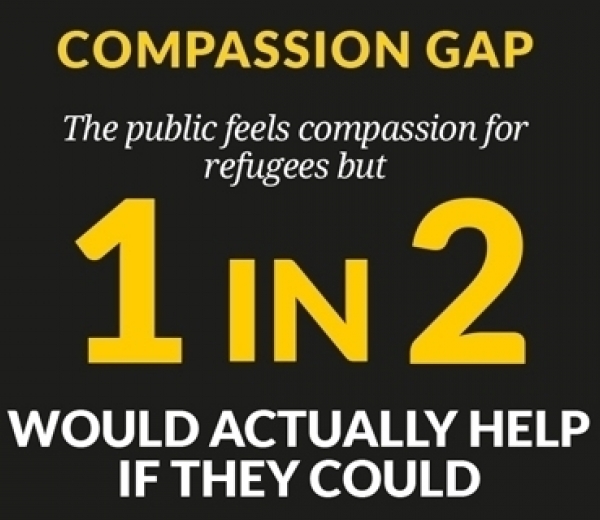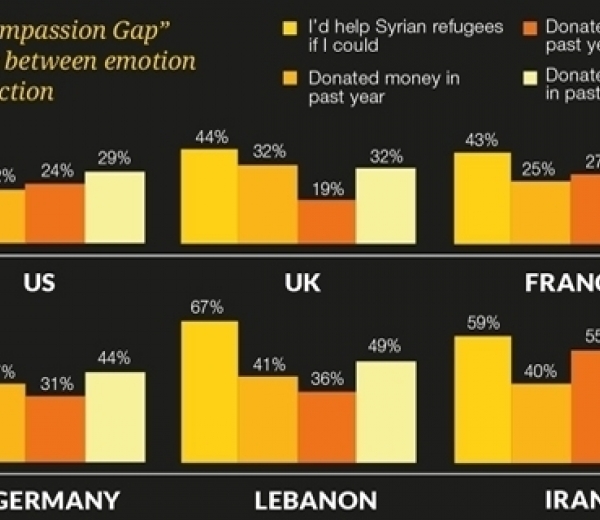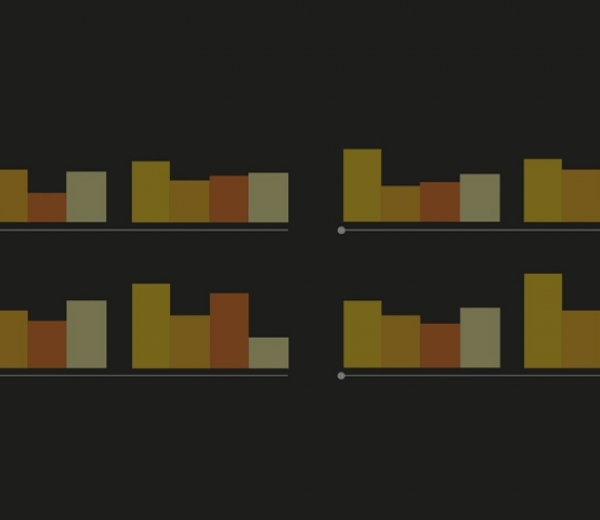Humanitarian Index 2016: Compassion Gap
The Humanitarian Index demonstrates the existence of a “compassion gap” – a large imbalance between what people say and feel versus what they would be willing to do. One in two respondents feel that refugees have been abandoned by the international community, and the vast majority agree that refugees deserve help. However, only one in two would actually help Syrian refugees if they could, and most doubt their ability to make a real difference.

“What this report highlights is the urgent need to inform the public of the global refugee crisis; the defining humanitarian challenge of our time. A passionate and mobilized public is critical to both ensuring support for the investment necessary to alleviate human suffering and also to hold political leadership accountable for tackling the root causes of the crisis,” said Dominic MacSorley, Chief Executive Officer of Concern Worldwide, a charity that works with the world's poorest people to transform their lives.
The research also uncovers some of the triggers that spur people to take action. Twenty-seven percent of those who have been compelled to take action on behalf of refugees have largely done so after hearing about a personal story and there is an overwhelming curiosity (close to 40%) to discover more stories about real individuals.

“What is encouraging is that the research shows that although individuals might struggle to turn compassion into action, the public realizes that those humanitarians who do intervene on behalf of others can have a tremendous impact,” said Vartan Gregorian, President of the Carnegie Corporation of New York, Co-Founder of the Aurora Humanitarian Initiative and a member of the Aurora Prize Selection Committee. “The Aurora Prize is about recognizing and celebrating these individuals for risking it all for the sake of others. By showing the impact one person’s actions can have, it is our hope that others will be compelled to act, too.”
You can read more about the Aurora Humanitarian Index 2016 here.

